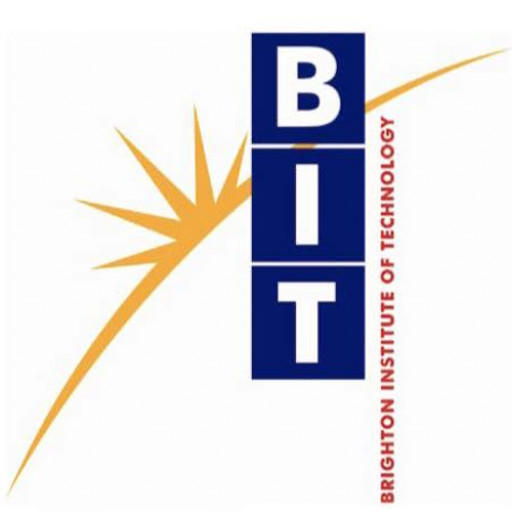Electrotechnology at Swinburne University of Technology is designed to provide students with comprehensive knowledge and practical skills in electrical systems, electronics, and electrical engineering. This program prepares graduates for diverse roles in the electrical and electronics industries, including installation, maintenance, troubleshooting, and design of electrical systems in residential, commercial, and industrial settings. Throughout the course, students engage with a wide range of topics such as electrical theory, circuit analysis, control systems, power distribution, automation, and renewable energy technologies. The curriculum combines theoretical learning with hands-on practical training in state-of-the-art laboratories, ensuring students develop both the technical expertise and problem-solving abilities necessary for their professional careers. The program emphasizes safety standards, industry best practices, and emerging technologies, enabling graduates to adapt quickly to evolving industry demands. Students are also encouraged to develop strong teamwork, communication, and project management skills through collaborative projects and industry placements. Upon completion of the Electrotechnology program, graduates are well-equipped to pursue opportunities in electrical contracting, maintenance services, engineering consulting, and other related fields. They may also opt to further their studies in electrical engineering or related disciplines. Swinburne's close ties with industry partners and focus on practical learning ensure that graduates are work-ready, equipped with up-to-date skills and knowledge to make meaningful contributions in the rapidly advancing electrotechnology sector. The program supports national and regional energy initiatives, including sustainable and renewable energy projects, aligning with Australia’s commitment to a cleaner, more sustainable future. Whether students aim to enter the workforce directly or continue their education, the Electrotechnology program offers a robust foundation for a dynamic and rewarding career in the electrical industry.
The Bachelor of Electrotechnology at Swinburne University offers students a comprehensive education in the principles and applications of electrical and electronic systems. This program is designed to equip graduates with the technical skills and theoretical knowledge necessary to design, develop, and maintain complex electrical systems across various industries. Throughout the course, students engage with core topics such as circuit theory, digital systems, control systems, power systems, and telecommunications. The curriculum combines foundational engineering principles with practical, hands-on experience facilitated by state-of-the-art laboratories and projects, preparing students for real-world challenges in the electrotechnology field.
Students will gain proficiency in analyzing electrical components and systems, applying modern software tools for design and simulation, and integrating sustainable energy solutions. The program also emphasizes industry-relevant skills such as project management, teamwork, and problem-solving, ensuring graduates are well-prepared for employment or further study. Students have opportunities to specialise in areas such as renewable energy systems, automation, industrial electronics, and digital communications, aligning their education with current market trends and technological advances.
In addition to technical expertise, the Bachelor of Electrotechnology fosters critical thinking and innovation, encouraging students to develop solutions that improve efficiency and sustainability. The program’s close ties with industry partners enable students to undertake internships, gaining valuable work experience and professional networks. Graduates of this program are prepared for careers as electrical engineers, automation specialists, maintenance engineers, or technical consultants in diverse sectors such as manufacturing, energy, telecommunications, and infrastructure development. With a strong emphasis on contemporary technological advances, industry standards, and sustainability practices, the Bachelor of Electrotechnology at Swinburne provides a solid foundation for a dynamic career in the evolving landscape of electrotechnology.
Program requirements for the Bachelor of Electrotechnology at Swinburne University of Technology include a combination of core courses, specialized electives, and practical training components. To graduate, students must complete a total of 360 credit points, typically spread over three years of full-time study. The core curriculum covers fundamental topics such as electrical circuits, digital systems, control systems, and electromagnetism, providing students with a solid foundation in electrical engineering principles. In addition to theoretical coursework, students are required to undertake laboratory work and project-based assessments that facilitate hands-on experience and practical problem-solving skills.
Elective courses allow students to tailor their education towards specific interests within the field, including renewable energy systems, automation, power systems, and telecommunications. To ensure industry readiness, the program incorporates mandatory industry placements, internships, or cooperative education components, where students gain real-world experience working with professional engineers and organizations. Entry requirements include completing a high school certificate with prerequisites in mathematics and physics, and meeting English language proficiency standards.
The program also emphasizes professional development, with coursework designed to foster communication, teamwork, and ethical practices in engineering. Students are encouraged to participate in extracurricular activities such as student clubs, seminars, and conferences to deepen their understanding of current technological trends. To graduate, students must also demonstrate competence in safety standards and sustainable engineering practices, reflecting Swinburne’s commitment to socially responsible engineering education. Upon successful completion, graduates are equipped with the technical skills and industry knowledge necessary for careers in electrical and electrotechnology sectors, including roles in manufacturing, energy, automation, and consulting industries.
The Bachelor of Electrotechnology at Swinburne University of Technology offers a comprehensive pathway for students interested in developing their expertise in electrical and electronic engineering disciplines. The program provides students with a solid foundation in the fundamental principles of electrotechnology, including circuitry, control systems, power systems, and electronics, alongside practical skills necessary for modern industry demands. Regarding financing studies, students have several options to support their educational journey.
Firstly, domestic students can access government-funded financial assistance schemes such as Youth Allowance, Austudy, or Assistance for Loans and Grants, depending on their circumstances. The Australian Government also offers the Higher Education Loan Program (HELP), which allows eligible students to defer tuition fees and repay them through the taxation system once their income surpasses a certain threshold. International students are required to pay tuition fees upfront or through approved payment plans, with costs varying based on the program and duration. Swinburne University provides various scholarship opportunities for both domestic and international students, which can significantly offset tuition costs and living expenses. These scholarships are highly competitive and typically awarded based on academic merit, equity considerations, or specific targeted programs. Additionally, students may consider external scholarships from government bodies, industry partners, or private foundations, which require separate application processes.
Part-time work during studies is another common way students finance their education. Melbourne's vibrant tech and engineering sectors provide opportunities for students to gain relevant part-time employment in related fields, although international students must comply with visa restrictions regarding employment hours. For those pursuing postgraduate pathways or combining studies with internships, industry collaborations facilitated by Swinburne help students develop networks that can lead to employment and financial stability post-graduation. Furthermore, students are encouraged to explore individual savings, family assistance, or educational loans from private financial institutions. The university's financial aid office provides tailored guidance to help students navigate their funding options effectively.
In summary, financing studies in the Electrotechnology program at Swinburne University involves a combination of government-supported loans, scholarships, employment opportunities, and personal funding. The university’s support services and industry links are designed to assist students in managing costs and ensuring they can focus on gaining the skills necessary for successful careers in electrotechnology.
The Bachelor of Electrotechnology at Swinburne University of Technology is an undergraduate program designed to equip students with comprehensive knowledge and practical skills in the field of electrical and electronic engineering. This program focuses on the fundamental principles of electrotechnology, including circuit analysis, electrical systems, automation, and telecommunications, preparing graduates for a variety of careers in the energy, manufacturing, and technology sectors. The curriculum combines theoretical coursework with hands-on laboratory exercises and industry-based projects, ensuring students gain real-world experience and are industry-ready upon graduation.
Students enrolled in this program have access to state-of-the-art laboratories equipped with the latest technology, allowing them to engage in experiments and projects that reinforce their learning. The program emphasizes critical skills such as problem-solving, system design, and professional communication, which are essential for successful careers in electrotechnology. Additionally, Swinburne's strong industry connections facilitate internships and work-placement opportunities, giving students firsthand exposure to industry practices and trends. The program is aligned with national and international standards to ensure graduates meet industry requirements and are competitive in the global job market.
The Bachelor of Electrotechnology also offers pathways for further specialization through elective courses in areas such as renewable energy, power systems, automation, and embedded systems. Students are encouraged to develop their technical expertise as well as their soft skills, including teamwork and management, which are highly valued by employers. Graduates of this program are prepared to work as electrical engineers, automation engineers, electrical technicians, or in related fields such as project management, system design, or technical consulting. Some students opt to continue their studies with postgraduate degrees to deepen their knowledge and enhance career prospects further.
Overall, the program provides a solid foundation in electrotechnology principles, combined with practical experience and industry engagement, creating a pathway for students to become innovative professionals capable of contributing to technological advancements and sustainable development. Swinburne's focus on practical learning and industry relevance ensures that graduates are well-prepared to meet the evolving demands of the electrotechnology sector in Australia and beyond.








